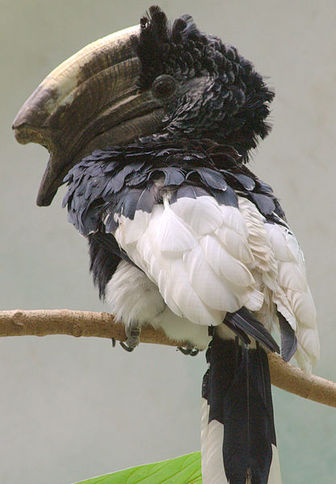Black-and-white-casqued Hornbill
The Black-and-white-casqued Hornbill is distributed to evergreen forests and savanna across equatorial Africa, in central and western Africa. A monogamous species, pairs nest in suitable tree cavities. The female usually lays up to two eggs. The diet consists mainly of figs, fruits, insects and small animals found in the trees.

Original source: Own work
Author: User:Dante Alighieri
Permission: GNU Free Documentation License
The Black-and-white-casqued Hornbill is classified as Least Concern. Does not qualify for a more at risk category. Widespread and abundant taxa are included in this category.
The Black-and-white-casqued Hornbill is distributed to evergreen forests and savanna across equatorial Africa, in central and western Africa. A monogamous species, pairs nest in suitable tree cavities. The female usually lays up to two eggs. The diet consists mainly of figs, fruits, insects and small animals found in the trees. Widespread and still common throughout its large habitat range, the Black-and-white-casqued Hornbill is evaluated as Least Concern on the IUCN Red List of Threatened Species. More

Original source: Emijrpbot
Author: Emijrpbot
Permission: Some rights reserved
Family : Bucerotidae
Genus : Bycanistes
Species : subcylindricus
Authority : (Sclater, 1870)

